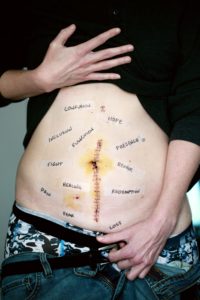Growing up, all you ever wanted was to be a mom. You played for hours on end with your dolls, entertained your young siblings and cousins, and even babysat other people’s children. Your dream was to one day have children of your own. If you’re facing challenges in achieving that dream, Irvine Christian Counseling is here to offer support and guidance during this difficult time.
 You marry the man you want to spend the rest of your life with, the one you want to start a family with and grow old with. A few years after marrying, you and your husband decide the time is right to start a family. Months go by and no baby. A year passes and still no baby. It’s then that you are introduced to the cold, harsh world of infertility.
You marry the man you want to spend the rest of your life with, the one you want to start a family with and grow old with. A few years after marrying, you and your husband decide the time is right to start a family. Months go by and no baby. A year passes and still no baby. It’s then that you are introduced to the cold, harsh world of infertility.
Or, maybe you’re a young man. You remember, with fondness, learning to throw a baseball with your dad; learning to shave; learning to drive a car. You just assume someday that you, too, will teach your son those same things and more. Or, maybe you’ll be the proud father in the audience, watching your little girl, your little, tiny ballerina at her first ballet recital.
No matter if it’s a son or daughter, being a father is something you know is part of your plan. You’ve met and wed the girl of your dreams a few years back and now you both decide it’s time to start a family. But after months of trying, it seems there’s a problem, and you are the one with the problem. You, too, have been introduced to the cruel, lifeless world of infertility.
Infertility is defined as the inability to conceive children. Infertility is a medical condition that often comes as a shock to those who experience it. No one plans on dealing with infertility.
Infertility in women is a common problem in the United States today, with about 10% of women between the ages of 15-44 finding it difficult to become pregnant. For most women, not being able to conceive, carry and give birth to a baby is devastating and even humiliating. A diagnosis of infertility can carry a stigma for women; one that makes infertile women feel less than, cheated, depressed and even distraught.
But infertility is not a condition that strikes only women – infertility in men has become more and more common. In the United States, in about 8% of couples experiencing infertility, the infertile spouse is the man. As with women, men who experience infertility may feel insecure, frustrated, angry, and ashamed.
There are many different types and causes of infertility. Often, especially in women, symptoms and warning signs are often present, but the woman is unaware that these symptoms could indicate infertility.
Below are some of the most common symptoms of infertility in women. If you are experiencing any of these symptoms and have had difficulty getting pregnant, consider talking to your doctor:
- Pain during sex
- Heavy, long or painful periods
- Dark or pale menstrual blood
- Irregular menstrual cycles
- Hormone changes
- Underlying medical conditions
- Obesity
As well as these symptoms, there are numerous causes of infertility in women. These include:
Polycystic Ovary Syndrome (PCOS). In PCOS, a hormonal imbalance causes small cysts to form on the ovaries, causing irregular periods, the absence of a period and other issues. Strangely enough, many women have PCOS and do not realize it.
Hormonal factors that impact ovulation. Irregular ovulation is the primary cause of about 25% of infertility in women. Often, the main issue is the dysfunction of the hypothalamus in the brain and the pituitary gland. Primary Ovarian Insufficiency, when a woman’s ovaries cease to function normally or become depleted, is another common ovulation issue.
 Endometriosis. Endometriosis happens when the tissue on the lining of the uterus starts growing in other places, like the ovaries, in the fallopian tubes and others. This outgrowth causes irritation and the development of scar tissue. This condition is usually very painful and can also block the fallopian tubes, disrupting the fertilization of the egg.
Endometriosis. Endometriosis happens when the tissue on the lining of the uterus starts growing in other places, like the ovaries, in the fallopian tubes and others. This outgrowth causes irritation and the development of scar tissue. This condition is usually very painful and can also block the fallopian tubes, disrupting the fertilization of the egg.
Uterine Fibroids. These polyps indent the endometrial cavity and can interrupt embryo implantation.
Pelvic Inflammatory Disease. Pelvic Inflammatory Disease, or PID, is an infection in the female reproductive organs. This infection can cause permanent damage to these organs by causing scar tissue.
Unexplained infertility. Unexplained infertility affects 1 in 4 couples experiencing infertility. In these cases, doctors are unable to locate a reason for a woman not to become pregnant.
As mentioned earlier in this article, there are medical conditions present in men that can cause infertility. Some of these conditions include:
Abnormal sperm production or function. These are many reasons for abnormal sperm count production and/or function, including undescended testicles, genetic defects, health problems, illnesses and/or infections and varicocele (enlarged veins in the testes.) All of these conditions can alter the quality of a man’s sperm.
Sperm delivery problems. Sometimes men have difficulty delivering sperm to the woman’s egg. These difficulties can include premature ejaculation, genetic diseases, such as cystic fibrosis; structural problems, such as a blockage in the testicles or even damage to the reproductive organs.
Overexposure to environmental factors. These factors can include pesticides, chemicals, radiation, cigarette smoking, alcohol, marijuana, anabolic steroids, and some medications. Also, frequent exposure to heat, such as in hot tubs or saunas, can raise a man’s body temperature too high, affecting sperm production.
Damage related to cancer and its treatment. This damage might come from the disease itself or radiation and chemotherapy used to treat cancer. All of these factors can greatly impair sperm production.
 As frightening and discouraging as all of these issues sound, there is hope for the couple who is experiencing infertility. Advances in medical technology have made it possible for couples with any of these issues to become pregnant. Thousands of women become pregnant each year with the help of infertility treatment.
As frightening and discouraging as all of these issues sound, there is hope for the couple who is experiencing infertility. Advances in medical technology have made it possible for couples with any of these issues to become pregnant. Thousands of women become pregnant each year with the help of infertility treatment.
One key to treating infertility is finding the right treatment provider and center. There are infertility clinics and doctors all over the country. These doctors specialize in treating infertility and cater their practice toward helping women become pregnant, have a healthy pregnancy and deliver healthy babies.
Infertility treatment can be a daunting experience, so couples should find a doctor they feel completely comfortable with, who has a high success rate and is reasonably affordable.
Once a couple chooses their provider, the doctor will assess the couple’s obstacles and needs and choose a treatment. Some of these treatments and processes include:
Natural cycle monitoring. Since ovulation is such an important part of a woman’s ability to become pregnant, sometimes infertility treatment begins by monitoring a woman’s ovulation. This helps doctors determine the path for fertility.
Ovulation Induction. Ovulation induction is one of the most common treatments for infertility. In this process, the woman’s ovaries are stimulated by medication, causing multiple eggs to be produced and allowing the doctors to pinpoint the time these eggs are released. Ovulation induction is frequently the first step in many fertility treatments.
Intrauterine Insemination. Intrauterine insemination, or IUI, is a very common and successful fertility treatment. In this treatment, sperm is washed and placed in the woman’s uterus when she is ovulating.
Laparoscopy or Hysteroscopy. In these minimally invasive surgeries, doctors are able to examine a woman’s reproductive organs, looking for cysts, adhesions, fibroids, and infections. Once found, doctors are usually able to remove and repair these problems, making it more likely for the woman to become pregnant.
 In Vitro Fertilization. In in vitro fertilization, or IVF, an egg is fertilized with sperm outside the body of the woman, then inserted into the uterus. This procedure works well when a woman does not ovulate regularly or there is damage to the woman’s fallopian tubes.
In Vitro Fertilization. In in vitro fertilization, or IVF, an egg is fertilized with sperm outside the body of the woman, then inserted into the uterus. This procedure works well when a woman does not ovulate regularly or there is damage to the woman’s fallopian tubes.
There are several factors, such as age, health, and severity of infertility, that affect the success of infertility treatment. With this in mind, some fertility clinics across the country have a 45% success rate with infertility treatment. There is hope.
Infertility treatment can be extremely difficult – physically, financially, socially, and emotionally. Couples undergoing any type of infertility process need an excellent support system and would truly benefit by having someone to talk to, helping them navigate through this difficult time.
Are you going through the difficult journey of infertility? We can help. Irvine Christian Counseling offers compassionate support to guide you through this challenging experience. Contact us today to get the care you need.
References:
- www.womenshealth.gov
- www.cdc.gov
- Medical News Today, 2019
- www.self.com
- www.mayoclinic.org
- CCRM Fertility. 2019
Photos:
“Depressed”, Courtesy of K. Mitch Hodge, Unsplash.com, CC0 License; “Mixed Emotions”, Colurtesy of Sharon McCutcheon, Unsplash.com, CC0 License; “Together”, Courtesy of Drew Hays, Unsplash.com; CC0 License; “Reconciled”, Courtesy of Taylor Hernandez, Unsplash.com, CC0 License
-
Dr. Joe Raphael: Author
With God’s help, we will work together to better understand and resolve the current challenges in your life to give you hope for a more fulfilling and meaningful future in Christ. Some common concerns that my clients share include dealing with stress...
-
Kate Motaung: Curator
Kate Motaung is the Senior Writer, Editor, and Content Manager for a multi-state company. She is the author of several books including Letters to Grief, 101 Prayers for Comfort in Difficult Times, and A Place to Land: A Story of Longing and Belonging...
DISCLAIMER: THIS ARTICLE DOES NOT PROVIDE MEDICAL ADVICE
Articles are intended for informational purposes only and do not constitute medical advice; the Content is not intended to be a substitute for professional medical advice, diagnosis, or treatment. All opinions expressed by authors and quoted sources are their own and do not necessarily reflect the opinions of the editors, publishers or editorial boards of Irvine Christian Counseling. This website does not recommend or endorse any specific tests, physicians, products, procedures, opinions, or other information that may be mentioned on the Site. Reliance on any information provided by this website is solely at your own risk.






